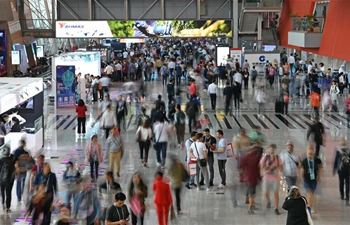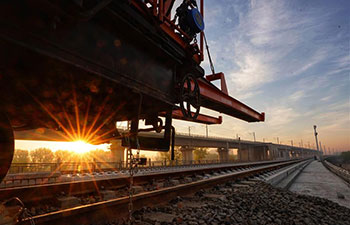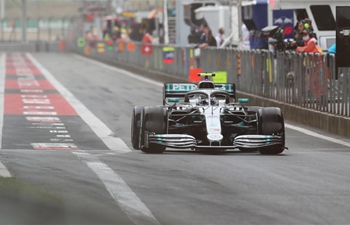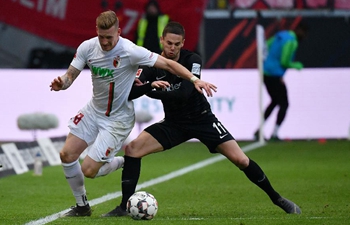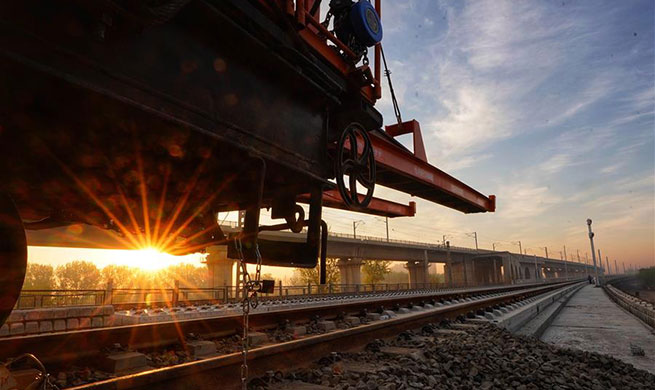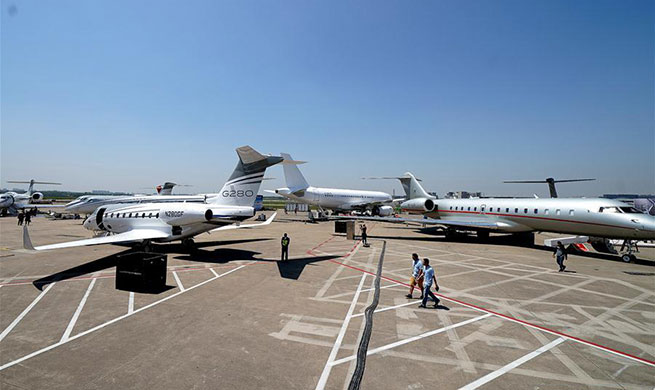by Eric J. Lyman
ROME, April 15 (Xinhua) -- Italian roads designed centuries ago for horses and chariots may soon be home to forms of high-tech, electrical transport as part of a broader plan to reduce air pollution and traffic congestion.
Italy's Ministry of transportation has given the OK for cities to start testing the use of portable, electric forms of transport including scooters, Segways, monowheels, and hoverboards starting this summer. Each city will have the right to work out the guidelines for the use of the small vehicles, including rules of the road and licensing.
The micro-transport vehicles are not designed to replace traditional cars, but rather to supplement their use as a kind of "last-mile" option -- whether for traveling short distances or for making connections between home and public transport or from the closest stop on public transport to a passenger's final destination.
"The goal is to give people a different option than the automobile, not for long distances but for distances a person might consider to be too far to walk," Luca Studer, a professor specializing in traffic and road safety at the Polytechnic University in Milan, told Xinhua.
Salvatore Palella, the founder and chief executive of Helbiz, a company that rents electric scooters through smart phone apps, agreed.
"Everybody wants to spend less time in their cars," Palella said in an interview. He said using or renting forms of micro-transport represents a low-cost alternative.
Helbiz, which started its Italian operations in Milan, sparked some controversy there after competitors said it had an unfair advantage due to beneficial rules in the city. Studer said that kind of issue is part of the growing pains to be expected from a new technologies and new economic sectors.
"To work, there has to be assurances that the same rules apply to entrants," he said. "There are also logistical questions: should they drive in the road or on the sidewalk? Both have disadvantages. Many roads in Italy are too old and narrow for special lanes."
Studer went on: "Should drivers be licensed to use something children often use? Can these devices just be left anywhere when the user finished or should they have to be left in certain areas? There are many details that will have to be worked out."
Still, the appeal of these devices is too big for them to be ignored. In addition to the benefits of reducing traffic, Andrea Poggio, head of the sustainable transport division for Legambiente, an environmental lobby group, said there are environmental benefits to using smaller vehicles that run off of batteries rather than traditional engines.
"It's too early to speculate on how much of an environmental impact a change like this could have, but I don't think we can discount anything that will reduce air pollution and greenhouse gas emissions," Poggio told Xinhua. "There is no single solution for the world's environmental challenges: there are many small solutions."
